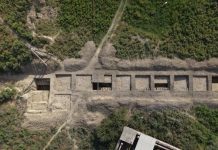Tibet: His father, Yue Fei, is a deputy chief surgeon from Shanghai-based Ruijin Hospital. He volunteered to serve at the Xigaze People’s Hospital, in the Tibet Autonomous Region, for three years as part of a medical partnership assistance program to help the region grow. Xigaze, situated at the foot of Mount Qomolangma, is 4,215 km away from home.
The boy didn’t know that his father is working on the plateau to help consolidate the poverty alleviation results. Tibet had already shaken off extreme poverty by the end of 2019, yet, “families who have just risen above the poverty line are more likely to slip back into poverty because of illness,” Yue Fei said.
Since the 1990s, medical workers from renowned hospitals across the nation have been signed up to work in Tibet to accelerate the development of medical and health services in the region. Since Shanghai teamed up with Xigaze, the second largest city in the region, doctors from the metropolis have taken turns to work in Xigaze for stints of one or three years.
Yue Fei is one of them. His tenure lasts from July 2019 to July 2022, during which he acts as both a leading surgeon and Vice President of Xigaze People’s Hospital in charge of training, advanced technology application and staff performance assessment.
Xigaze is a city with an average altitude of 4,000 meters. The lack of oxygen poses a challenge to Yue Fei and his colleagues. “When we climb up a flight of stairs or walk a little faster, the heart beats faster too, like it does on a first date,” he said, adding that it is hypoxia that makes the heartbeat accelerate.
What’s worse, hypoxia makes surgery in Xigaza much more energy consuming than in Shanghai. “We are called Doctor Braids because when we do surgery, both the patient and the surgeon are on oxygen. Without additional oxygen, our brains can become slow at critical times,” Yue Fei said.
Although occupied by a load of administrative work as a vice president of the hospital, Yue Fei loves being in surgery. “I always keep my surgical cap on my desk because I might be needed for an emergency operation at any time,” he said. After coming to Tibet, he has saved more than 100 lives in emergency surgeries.
Saving lives aside, training young Tibetan doctors features high on Yue Fei’s agenda. Before 2019, local surgeons in Xigaze People’s Hospital could only conduct laparoscopic or “minimally invasive” surgery on the gall bladder. Today, two of Yue Fei’s students have mastered the technique for gastrointestinal and liver surgeries. “I hope that after three years, local doctors in Tibet can conduct complicated surgeries and manage the more difficult cases just like their counterparts in Shanghai can,” he said.
It was a September afternoon in 2020. A patient named Padma showed up at the emergency ward of Gyangze County People’s Hospital, 91 km southeast of Xigaze. He had been coughing and experiencing bouts of cold sweats for two days. An electrocardiogram (EKG) was done and the image was sent to Xigaza People’s Hospital via an EKG cloud system in real time.
– The Daily Mail-Beijing Review News exchange item






